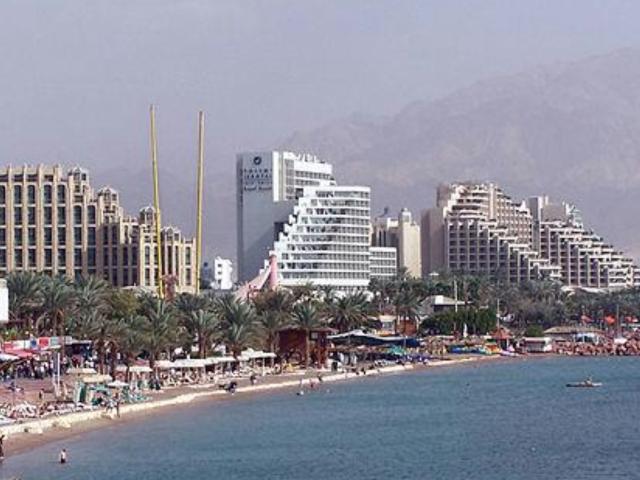In a recent development that underscores the ongoing challenges faced by communities affected by conflict in Israel, the Isrotel hotel chain has announced a significant decision impacting hundreds of families displaced due to hostilities in the northern part of the country. These families, who had sought refuge in the serene surroundings of Eilat, have been informed by Isrotel that they must vacate their temporary accommodations by March 1. This directive comes as the Passover holiday approaches, a period traditionally associated with a surge in tourism.
The evacuation program, funded by the government, had initially provided a safe haven for thousands from Kiryat Shmona, a town that has endured the brunt of cross-border attacks and rocket fire, primarily orchestrated by the Iran-backed Hezbollah. These residents, having fled their homes to escape the constant threat of violence, found solace in the hospitality offered by Isrotel's Eilat hotels.
מפונים מהצפון ומהעוטף התבקשו לעזוב בסוף החודש את מלונות ישרוטל, כשחלקם לא יוכלו לשוב הביתה גם בעוד חודשים. תושבי קריית שמונה גרים ב-200 מחדרי הרשת באילת, וחושדים כי מתכננים להחליפם בנופשים בפסח: "שוב עוקרים אותנו". ישרוטל מטילה את האחריות על הממשלהhttps://t.co/5uQPonafG7
— יאיר קראוס (@yair_kraus) February 18, 2024
However, this sense of stability is now threatened as the hotel chain seeks to make room for the influx of tourists expected during the Passover season. The decision has been met with stark criticism from both the Kiryat Shmona municipality and Mayor Avichai Stern, who argue that this move disregards the well-being of families still reeling from the trauma of displacement. Stern's poignant critique highlights a perceived prioritization of profit over people, as he accuses Isrotel of displacing evacuees, including vulnerable groups like children and the elderly, to cater to holiday guests.
The controversy illuminates a broader issue faced by displaced individuals in Israel, where temporary solutions to housing crises are often complicated by economic and logistical factors. The integration of evacuees into local communities, schools, and social structures in Eilat underscores the complex web of challenges that arise when displacement intersects with the country's vibrant tourism industry.
Isrotel hotel chain tells displaced families in Eilat they must exit by March 1 https://t.co/7jYONEBKXr
— The Times of Israel (@TimesofIsrael) February 19, 2024
This situation has sparked a dialogue about the responsibilities of private enterprises in times of national crisis, with voices calling for a more compassionate approach to accommodating those affected by conflict. The narrative also touches on the ongoing security concerns along Israel's northern border, which continue to disrupt the lives of residents in the region.
As discussions between Isrotel and representatives of the displaced communities reach an impasse, the plight of these families highlights the ongoing struggle to find long-term solutions for those displaced by conflict. The government's involvement in facilitating returns to communities deemed safe and extending support for hotel stays until mid-year represents a step toward addressing the immediate needs of evacuees. Yet, the broader challenge of ensuring stable, secure housing for all displaced persons remains an urgent issue for Israel.
Israel’s Leading Hotel Chain Expands to Greece
— Algemeiner (@Algemeiner) February 7, 2024
“We succeeded in doing the best in Israel, creating a culture that people love, so if you know Isrotel you will want to visit,” @IsrotelHotels Marketing VP Benny Levy told The Algemeiner.
By @troyfritzhand https://t.co/fD3GgOkK97
This unfolding story is a reminder of the human cost of conflict and the importance of solidarity, empathy, and sustainable planning in addressing the needs of those caught in the crossfire of geopolitical tensions.


